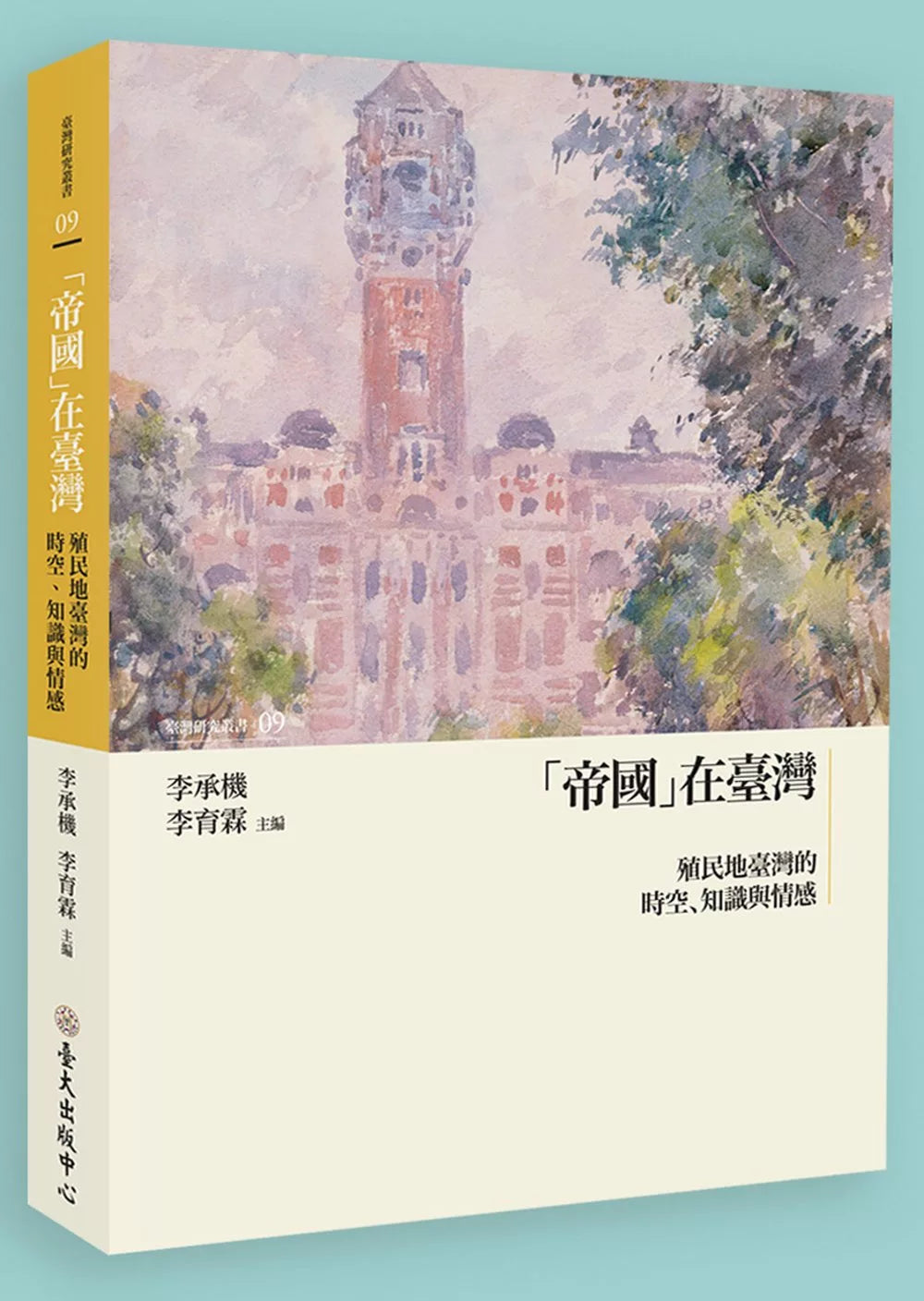1
/
of
1
"Empire" in Taiwan
"Empire" in Taiwan
Su Shuobin , Yan Xingru , Zeng Wenliang , Li Chengji , Liu Shuqin , Liao Xintian , Shi Wanshun , Li Yulin
Regular price
$21.99 USD
Regular price
Sale price
$21.99 USD
Unit price
/
per
Low stock
Couldn't load pickup availability
About Book
About Book
The Empires on Taiwan: Time, Space, Knowledge, and Sentiment of Colonial Taiwan
The past is not really past;It just changes form and continues to exist in our lives.
How did Japan's colonial rule over Taiwan permeate the intellectual and cultural fabric of ordinary people's lives?
How should post-colonial Taiwan view this historical experience of being colonized today?
Time and Space ╳ Knowledge ╳ Emotion: Three Imperial Portrayals of the Colony. This book focuses on Taiwan under Japanese imperial rule, encompassing both imperialist and local perspectives on the colony. This book considers the cultural conditions of the colony as the result of the mutual reference and overlap of these two perspectives. The book is divided into three themes, based on the materials and content discussed: "Portrayals of Space and Time Consciousness," "Portrayals of Knowledge and Knowledge Communities," and "Portrayals of Art and Emotional Structures."
Describing spatial and temporal consciousness: From the negotiation and conflict over local social governance and colonial spatial power to how "national holidays" under Japanese rule transformed the "time system" of Taiwanese society, this study then compares the temporal and spatial consciousness of the "state" and "people," which are not necessarily identical.
· Portraying Knowledge and Intellectual Communities: From the perspectives of advocates and language media, this study explores how intellectuals and communities leveraged expertise and identity to engage in a subtle interplay with Japanese colonizers, even critiquing the "imperial" narrative and offering a cross-cultural perspective.
.Depicting Art and Emotional Structures: Through art, literature, and opera, this work depicts and reflects on the differences in identity within colonial relations, proposing that the cultural development of the "empire" and the colonial Taiwan are in an overlapping relationship of "mutual growth and mutual support."
★ Recommended by Wu Mi-cha (Adjunct Professor, Department of History, National Taiwan University) and Lu Shao-li (Professor, Department of History, National Taiwan University) Celebrity recommendations:
Empires have been a constant presence throughout Taiwanese history. Yet, we don't necessarily have a truly profound understanding of what "empire" is or how it exists in Taiwan. Even when there is some discussion of "empire," it often simply reiterates themes of imperialism, often analyzing it within easily observable areas like politics, military, law, and the economy, while paying little attention to more subtle aspects like culture and mentality.
From a postcolonial perspective, this book analyzes the empire's permeation and influence on Taiwanese daily life, space, knowledge, literature, art, and culture. It not only focuses on the empire's unilateral influence on Taiwan, but also examines Taiwan's ability to actively resist, resist, and even define the empire's influence. In other words, there is a fluid interaction between them. "Taiwan" and "empire" are both mutually influential and interactive. Their relationship exists not only in the past, but also in the present and will continue to influence the future.
This book can be titled "The Empire in Taiwan" or "The Empire of Taiwan".
-- Wu Mi-cha (Adjunct Professor, Department of History, National Taiwan University)
"How do we reread and confront Taiwan's historical experiences and cultural phenomena? This is not only a historical question, but also an ethical one, one that concerns society's current attitude toward history." This is the book's key insight.
This book attempts to rethink the many processes of the Japanese Empire in Taiwan by placing the empire in a relative (rather than absolute, unilateral, top-down) context. It also pays special attention to the "emotional structure" and life experiences of colonial people toward Japan, hoping to transcend the binary opposition between national history and colonial history and establish a new perspective on Taiwanese history and culture. Today, on the 120th anniversary of the signing of the Treaty of Shimonoseki and the 70th anniversary of the end of the war, the historical experiences and cultural phenomena left by the Japanese Empire in Taiwan are issues that we must seriously confront!
--Lü Shaoli (Professor, Department of History, National Taiwan University)
Publication Date
Publication Date
2015-12-21
Publisher
Publisher
臺大出版中心
Imprint
Imprint
Pages
Pages
328
ISBN
ISBN
9789863501206
share

